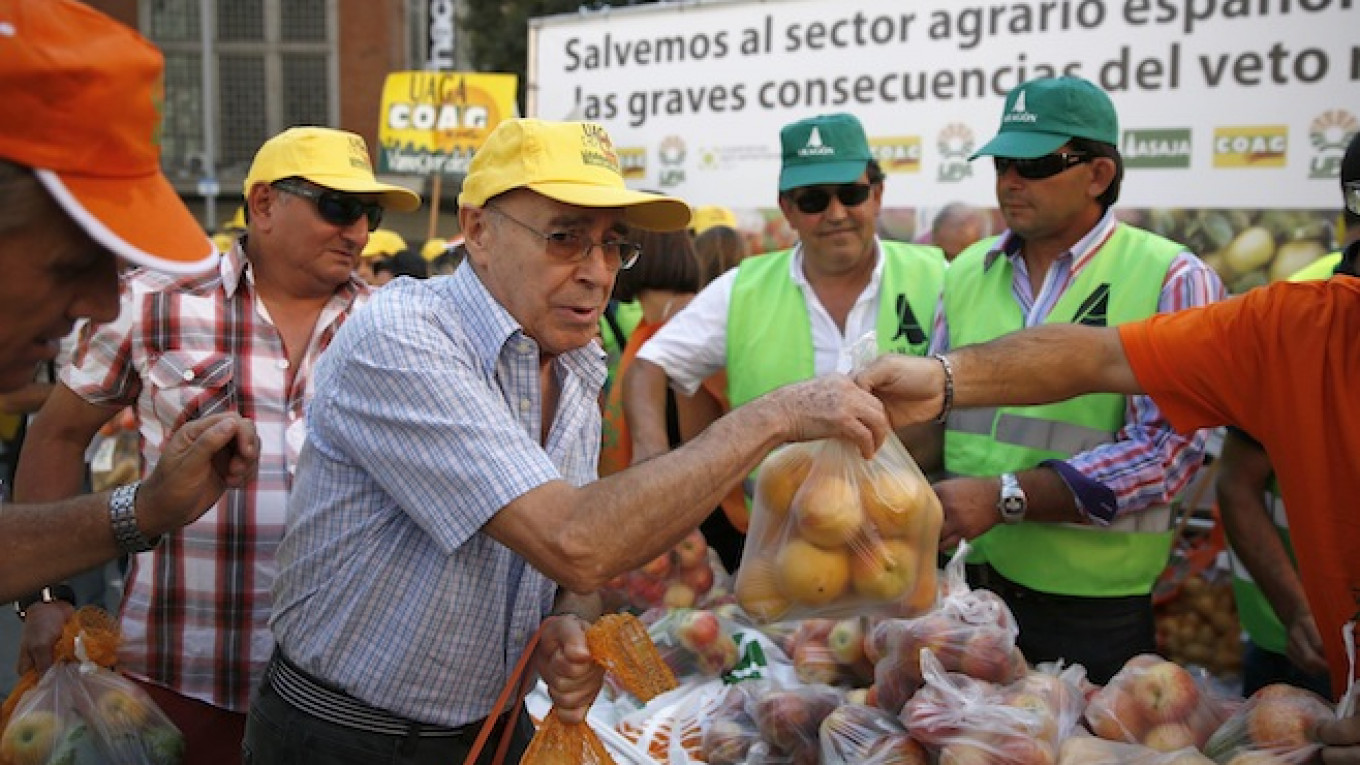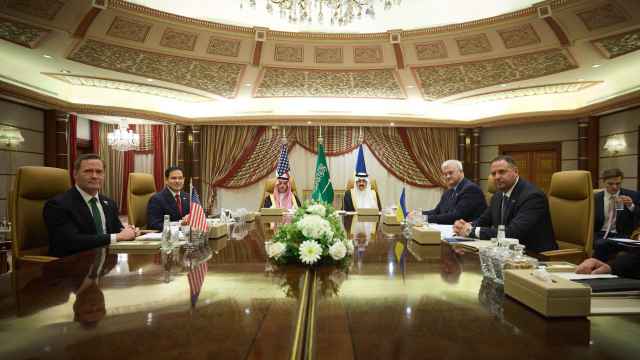The European Commission on Tuesday announced a new set of measures, worth up to 165 million euros, to help fruit and vegetable producers hit by a Russian ban on agricultural imports.
Last month Moscow imposed a one-year embargo on meat, fish, dairy, fruit and vegetables from the United States, the European Union, Canada, Australia and Norway in retaliation for Western sanctions over Russia's role in the Ukraine crisis.
EU farm exports to Russia are worth about 11 billion euros a year, or roughly 10 percent of the bloc's agricultural sales. The Russian embargo has affected EU products worth 5 billion euros, the Commission has said.
The measures announced on Tuesday will attempt to tackle oversupply and falling prices by compensating producers if they tighten the market through steps such as withdrawing produce and giving it away.
It follows a previous scheme, introduced in the immediate aftermath of Russia's ban, which provided 125 million euros in aid for producers but was suspended after a surge in claims led to it being heavily oversubscribed.
The new measures are in addition to the money announced in August and, for the first time, they include oranges, mandarins and clementines, the Commission said.
Other products included in the new scheme, which runs until the end of the year, аре apples, pears, kiwi fruit, grapes, cucumbers, peppers, while some vegetables previously covered by EU aid — cabbage, cauliflowers, broccoli, mushrooms, and soft fruit — are no longer on the list.
A Message from The Moscow Times:
Dear readers,
We are facing unprecedented challenges. Russia's Prosecutor General's Office has designated The Moscow Times as an "undesirable" organization, criminalizing our work and putting our staff at risk of prosecution. This follows our earlier unjust labeling as a "foreign agent."
These actions are direct attempts to silence independent journalism in Russia. The authorities claim our work "discredits the decisions of the Russian leadership." We see things differently: we strive to provide accurate, unbiased reporting on Russia.
We, the journalists of The Moscow Times, refuse to be silenced. But to continue our work, we need your help.
Your support, no matter how small, makes a world of difference. If you can, please support us monthly starting from just $2. It's quick to set up, and every contribution makes a significant impact.
By supporting The Moscow Times, you're defending open, independent journalism in the face of repression. Thank you for standing with us.
Remind me later.






